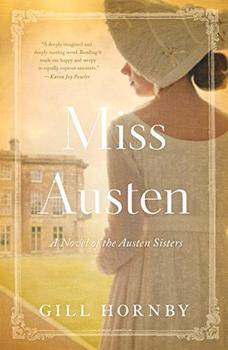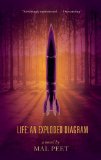Summary | Excerpt | Reading Guide | Reviews | Beyond the book | Read-Alikes | Genres & Themes | Author Bio

Critics' Opinion:
Readers' Opinion:
First Published:
Mar 2008, 352 pages
Paperback:
Apr 2009, 352 pages
 Book Reviewed by:
Book Reviewed by:
Amy Reading
Buy This Book
A fascinating and exquisitely written novel about the art and life of Robert Frost.
In his most recent novel, I Should Be Extremely Happy in Your Company, Brian Hall won acclaim for the way he used the intimate, revelatory voice of fiction to capture the half-hidden personal stories of the Lewis and Clark expedition. In his new novel Hall turns to the life of Robert Frost, arguably America’s most well-known poet. Frost, as both man and artist, was toughened by a hard life. His own father died when Frost was eleven; his only sibling, a sister, had to be institutionalized; of his five children, one died before the age of four, one committed suicide, one went insane, and one died in childbirth.
Told in short chapters, each of which presents an emblematic incident with intensity and immediacy, Hall’s novel deftly weaves together the earlier parts of Frost’s life with his final year, 1962, when, at age eighty- eight, and under the looming threat of the Cuban Missile Crisis, he made a visit to Russia and met with Khrushchev.
As Hall shows, Frost determined early on that he would not succumb to the tragedies life threw at him. The deaths of his children were forms of his own death from which he resurrected himself through poetry—for him, the preeminent symbol of man’s form-giving power.
A searing, exquisitely constructed portrait of one man’s rages, guilt, paranoia, and sheer, defiant persistence, as well as an exploration of why good people suffer unjustly and how art is born from that unanswerable question, Fall of Frost is a magnificent work that further confirms Hall’s status as one of the most talented novelists at work today.
Chapter 1
Moscow, USSR
Thursday September 6, 1962
"The old man won't be placated."
Franklin Reeve is speaking to Fred Adams outside the door. He
wasn't bothered to close it, since the old man is deaf as a post. But the old
man doesn't hear half bad when he turns his right ear forward.
His deafness is part ruse. He's always been a slow thinker, and
at eighty-eight he creeps. He gets confused. The wanted word fails to come, the
riposte wobbles on him (or the thought warns: how many times has he said that?).
So he retreats, recoups: "What was that? I didn't hear." A result is, he
overhears more now than at any time since he was a boy, when he listened to his
parents' voices beyond the door about to be flung open, his ears made acute by
fright.
Fred stands before him, assessing how to handle the big baby.
The big, spoiled baby.
Well goddamn him! Yes, he won't be placated and why should he
be? Dobrynin invited him here. The Russian ambassador...
Is it too early to crown the best novel of 2008? It's hard to imagine that in the nine months remaining in this year I will glean more pleasure from a book than I did from Fall of Frost.
This is a novel that works on every possible level. For its too-short duration, I was completely immersed in its world, the emotional landscape of Robert Frost. Yet I also read it with enough critical distance to marvel, open-mouthed, at the skill with which Brian Hall constructed the book. Fall of Frost is a character study in the deepest sense, a spelunking into the psychological ferment behind Frost's poems. And it is simultaneously an extremely sophisticated meditation on literary form: a novel about poetry which is itself built like a series of exploded and distended poems; an exploration of the writing process that arises from sensitive readings of Frost's work; a fictionalized biography which puts the artificiality of its own method on display (making it an implicit antidote to this tiresome era of the false memoir). And to think that Hall did all this with one hand tied behind his back, prevented by the Frost estate from reprinting any of the poet's later work...continued
Full Review
(841 words)
This review is available to non-members for a limited time. For full access,
become a member today.
(Reviewed by Amy Reading).
By the end of his long life, Robert Frost was the éminence grise of American letters, a man whose legend preceded him and who often collaborated in promulgating that legend. Yet Brian Hall depicts a Robert Frost who is distinctly more complex than the one most of us encountered in high school, that "simple rustic," that plain-spoken New Englander who extolled the virtues of rural life. Consider these infrequently mentioned details of the Frost mythos:
This "beyond the book" feature is available to non-members for a limited time. Join today for full access.

If you liked Fall of Frost, try these:

by Gill Hornby
Published 2021
For fans of Jo Baker's Longbourn, a witty, poignant novel about Cassandra Austen and her famous sister, Jane.

by Mal Peet
Published 2013
Can love survive a lifetime? With its urgent sense of history, sweeping emotion, and winning young narrator, Mal Peet's latest is an unforgettable, timely exploration of life during wartime.





The House on Biscayne Bay
by Chanel Cleeton
As death stalks a gothic mansion in Miami, the lives of two women intertwine as the past and present collide.

The Flower Sisters
by Michelle Collins Anderson
From the new Fannie Flagg of the Ozarks, a richly-woven story of family, forgiveness, and reinvention.

The Funeral Cryer by Wenyan Lu
Debut novelist Wenyan Lu brings us this witty yet profound story about one woman's midlife reawakening in contemporary rural China.
Your guide toexceptional books
BookBrowse seeks out and recommends the best in contemporary fiction and nonfiction—books that not only engage and entertain but also deepen our understanding of ourselves and the world around us.